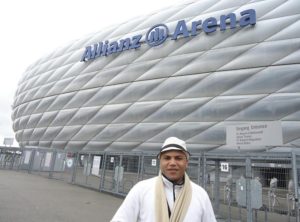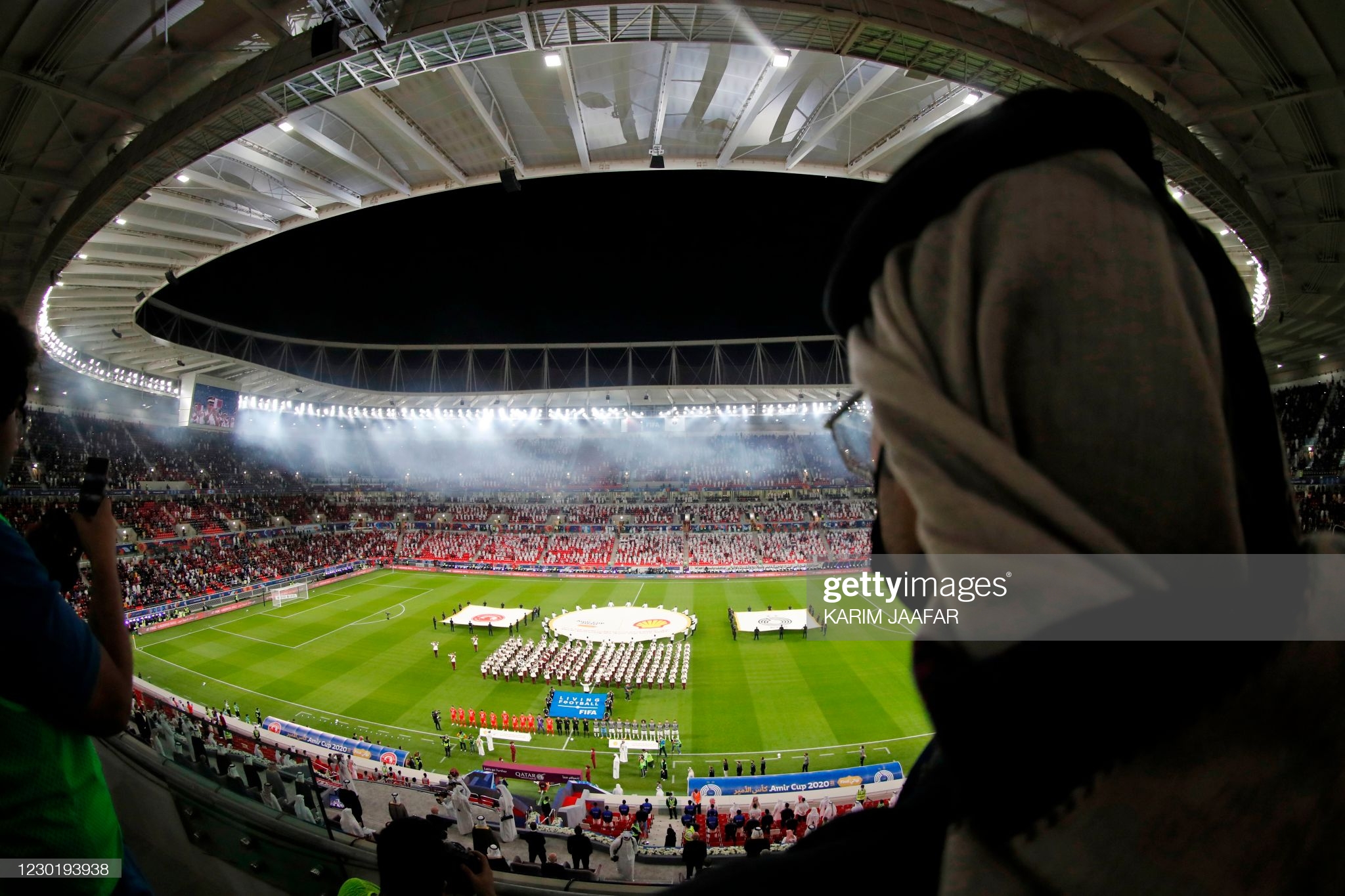BeIN Sports commentator Adel Khellou on football and commentary in the Covid-era

“This is the day and the week we thought might never come. After nine months of ghost games, fans are back and as this COVID crisis has shown, this game is absolutely nothing without them.
“Empty stadiums have provided a grim, silent, soulless, miserable backdrop to the action.
“Let’s hope this is the beginning of the end.”
-Ian Darke, Arsenal 4-1 Rapid Vienna, Europa League 3 December 2020 on BT Sports as 2000 fans cheer at the Emirates stadium in North London.
The Coronavirus pandemic has in no doubt had its body enveloped around the necks of sports, deeply affecting how events are held and experienced.
Football certainly holds the same position as the sport has taken a major hit due to the lack of supporters in stadiums, with games across Europe and the world played behind closed doors. The blemished version of the beautiful game that we currently witness sees the likes of Catalan giants FC Barcelona struggling to balance the books, whilst smaller clubs are being forced to operate without any financial support and losing huge swathes of income, leaving communities separated. Since its bittersweet return, the sport of football has been wearing new attire in a depressing attempt at replicating the sport we lost in March.
The dreaded virus’s effect on the sport stretches further than just the performances and what is happening on the pitch. One must wonder how this has influenced those covering the sport; more precisely, the commentary box? How has the lack of supporters and overall energy that comes with the beautiful game influenced the way commentary on the games is done?
BeIN Sports (Middle East) football commentator of more than 10 years, Adel Khellou, told the Sports Gazette: “It was a difficult period where there was no football to cover and with cases of the coronavirus going up, the last thing I thought would return soon was football. The exact opposite happened.
“During this period where I was not able to commentate over football, I spent my time in quarantine reading books and novels to expand my knowledge; including one written by my renowned colleague, Ayman Gada, called Why Football?”
You can’t underestimate the role of the commentator. Memories are formed with iconic quotes engraved in the minds of football fanatics. Matches can be made or ruined depending on how elite or poor the commentator is. Football commentary is an art that can either complement and enhance the viewing experience or ruin an otherwise enjoyable game of football.
The match itself, the commentary, and the fans cheering and booing. Each aspect completing the other in similar fashion to the human body; when part of it is hurting, the whole body sympathises and hurts with it.

A vacuum of excitement, on commentary
Good commentary requires conversion and communication. Conversion of the energy generated by the fans as well as the excitement produced by the players. However, when the energy from fans is missing and it’s having a domino effect on performances and other aspects of the game, where does that leave the commentator?
“The truth is, the absence of fans had a major negative impact on the rhythm and speed of the games and all the excitement and entertainment that comes with the beautiful game,” adds Khellou.
“As a football commentator, the tone and pitch of your voice is massively impacted by the lack of supporters. Usually, when there are fans present at the games, you raise the tone and pitch of your voice accordingly, switching between different levels of excitement and vocal levels.
“However, the situation without supporters differs massively as it could potentially lead you to commentate in a lower and more monotone pitch without even noticing and that is something every commentator should avoid.”
There is a reason the continental competitions in South America carry massive football prestige. The energy present at La Bombonera and other stadiums within the region is unrivalled. Stadiums filled with fire and smoke, paper notes, and 54,000 passionate Argentinian fans screaming at the top of their lungs.
“When I was commentating on games from the Brazilian and Argentinian leagues as well as Copa Libertadores at 3 or 5AM, I would be fatigued and sleepy,” adds Khellou.
“The moment I put on my headphones and hear the Brazilian and Argentinian fans chanting and shouting at the top of their lungs, the sound has an impact on me that is like strong espresso. It made me forget that I was even tired in the first place.
“It gets you excited in contrast to other matches that were at suitable times but without fans where it feels like a constant battle with sleepiness. The attendance of fans is crucial.”
Indeed it is. And in more ways than one, as Khellou explains.
“The UEFA Champions League has lost a great deal of its significance and value due to the absence of supporters. There is a massive difference when it comes to how the game is viewed.
“This has also affected the level of the football played. Some games had the atmosphere of a golf game. For a sport like football, this does not help.”
Whilst league competitions managed to resume following football’s return in May, competitions like the Euros and Copa America 2020 were put on hold until next year.
“Imagine if the Euros were played without fans, imagine if the World Cup is played without fans. There is the upcoming club world cup in Qatar in February, imagine that without fans! There would not be any flavor or meaning to these competitions without the fans.
“Without fans football has lost some of its enjoyment.”
The English Premier League recently allowed up to 2,000 fans back into stadiums, although teams in London have subsequently been stripped of the right to host fans following the decision to move the capital back into tier three and later on into a national lockdown.
However, with a vaccine on the horizon, we could soon see a gradual return of fans in glorious full capacity.

Images from the 2020 Qatar Amir Cup Final between Al Saad and Al Arabi which witnessed an attendance of 20,000 supporters at the newly opened Al Rayyan Stadium most certainly showed the world that it is possible, even in the current world predicament.
The upcoming Club World Cup in February is yet another opportunity for World Cup 2022 hosts Qatar to hold another prestigious FIFA event in its capital of Doha.
Preparation for the nation’s biggest challenge is underway and the country is witnessing its biggest changes and growth. However, with fans slowly being allowed back into stadiums, will football’s biggest events and teams regain their status and significance or has the sport lost a piece of its soul permanently?
“One of the biggest lessons learned because of this pandemic is that football matches without fans truthfully just don’t feel the same. They no longer have the value they carried in the past.”
But sometimes, it goes beyond football…
“We also learned to take care of ourselves better and direct our attention towards hygiene, our mental and physical health.
“This pandemic has taught us that there are a lot of positive things in life that we have but aren’t aware of and that is why we should be taking care of ourselves and enjoying each day as it comes as this life is not for granted.”